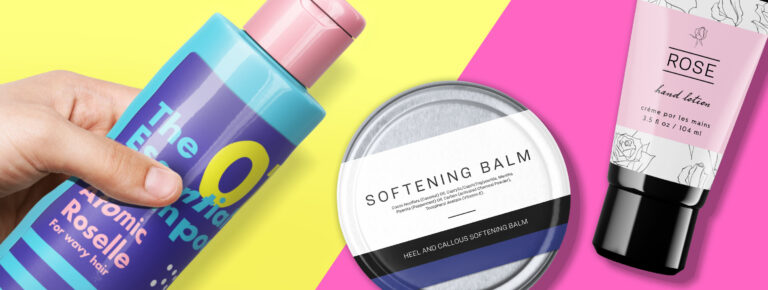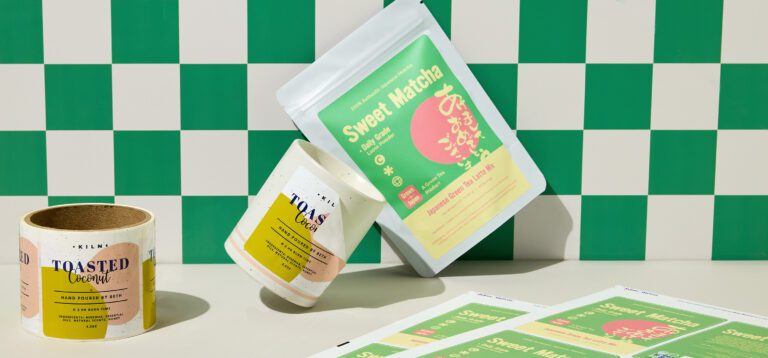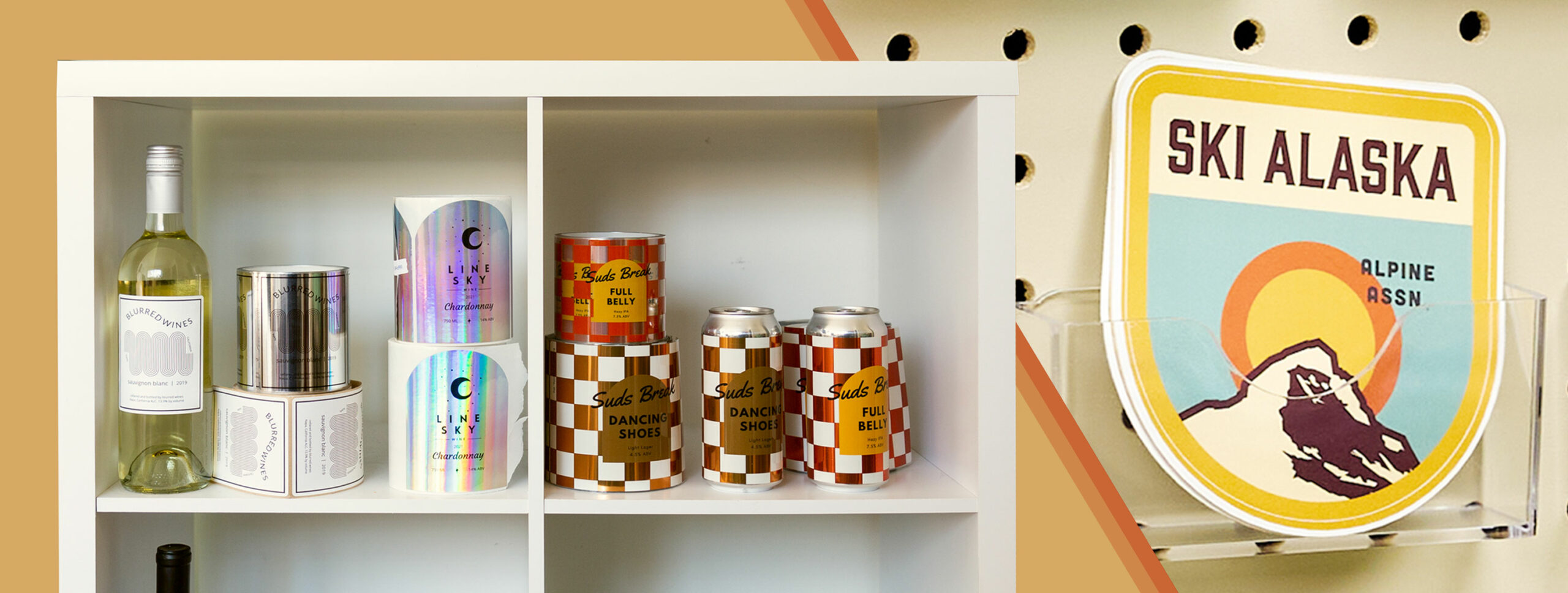
Shelf Life of Stickers and Labels
Estimated reading time: 4 minutes
How long do labels and stickers last?
Did you know that stickers and labels have a shelf life? If you’ve ever stored unused stickers or labels for too long, you may have noticed that their adhesive doesn’t stick as well, or the print quality doesn’t look as sharp. The good news is, with the right storage practices, you can extend their lifespan and get the most value for your money.
This guide will help you understand the difference between shelf life and service life, share tips for storing stickers and labels properly, and help you recognize when it’s time to toss out old supplies.
Other articles you might like:
Shelf Life vs. Service Life: What’s the Difference?
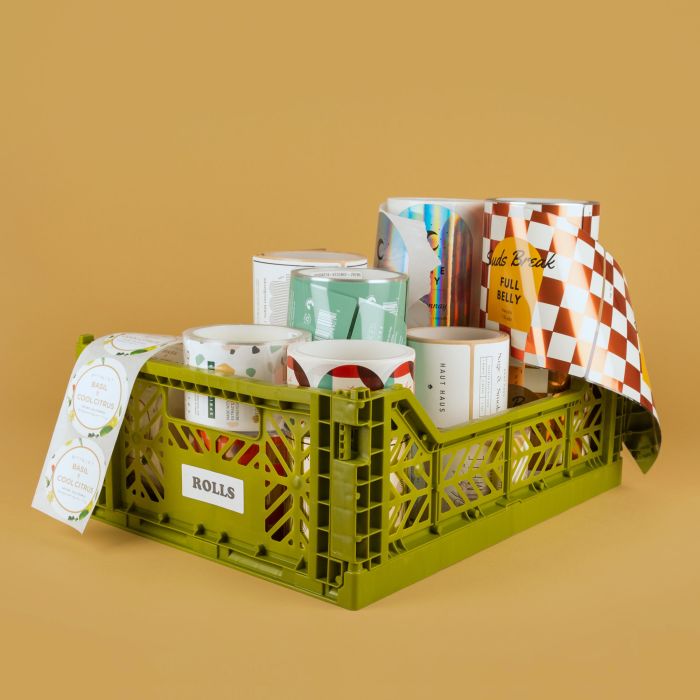
When it comes to stickers and labels, there are two important timelines to know: shelf life and service life.
Shelf Life is the period labels or stickers can be stored (under proper conditions) without losing quality or adhesive performance. Service life is how long a sticker or label remains effective after it’s applied to a surface.
Shelf life ends the moment you apply the sticker or label. The service life, however, can last much longer. For example, most Avery labels have a shelf life of 2–3 years but a service life of 10–15 years once applied.
What Affects Sticker and Label Shelf Life?
The longevity of your stickers and labels depends on three main factors:
- Manufacturing quality: High-quality materials and adhesives last longer. Avery, the inventor of self-adhesive labels, is a trusted brand for thoroughly tested, durable stickers and labels.
- Storage conditions: Incorrect storage, like exposure to heat, humidity, or sunlight, can shorten the lifespan of your stickers.
- Usage habits: If you order labels in bulk, using a “first-in, first-out” approach ensures older labels don’t sit unused for years.
How to Extend the Shelf Life of Stickers and Labels
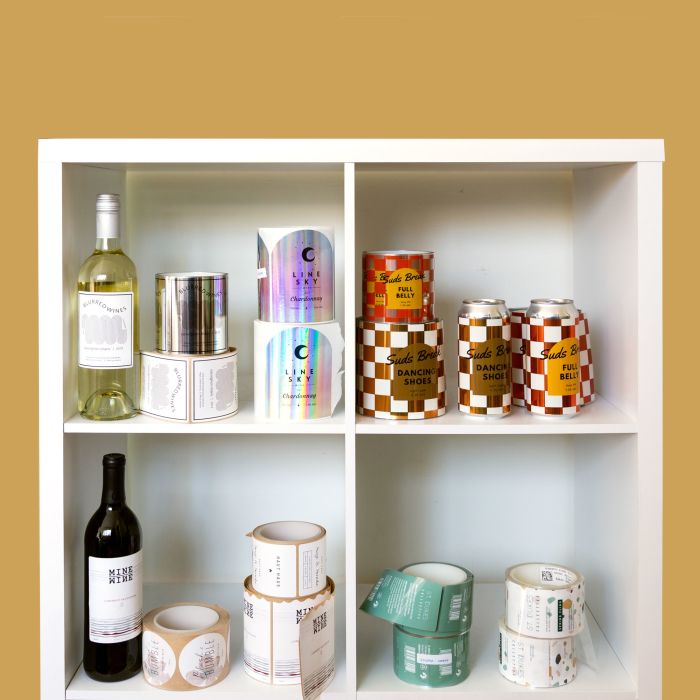
There are some simple steps you can follow to ensure your stickers and labels last as long as possible.
Store at the correct temperature: Keep stickers in a cool, dry space between 60–77°F. Humidity levels should stay around 50%. For businesses in tropical or desert climates, climate-controlled storage is a must.
Avoid sunlight exposure: UV rays can fade label ink and reduce shelf life, even with protective coatings. Always store labels indoors, away from direct sunlight.
Protect from liquids and damage: Water and other liquids can weaken adhesives and cause labels to curl. Airtight, watertight containers can shield your labels from climate shifts, spills, and scratches.
Keep packaging intact: Original packaging protects the backing, adhesive, and print quality of your stickers and labels. For sheet labels, keep them flat and uncreased. For roll labels, preserve the core to maintain roll integrity.
When Should You Throw Out Labels?
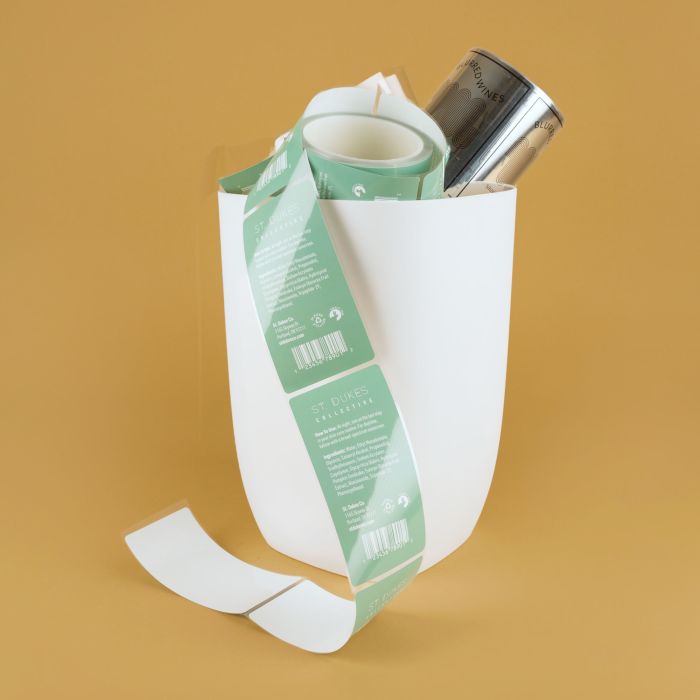
Even with proper care, there are times when it’s best to discard old stickers and labels.
Visible damage: If your labels or stickers have been exposed to heat, humidity, or liquidheir adhesive strength may be weakened or they may show ink distortion.
Rebranding: If you’re changing logos, color schemes, or updating a product line, your older labels won’t match your new branding.
Regulation changes: Industries like health and wellness often require updated labels to meet new regulations. Keeping a smaller inventory of labels and stickers or printing often-changing labels yourself, can help your business adapt quickly so you don’t have to throw out large quantities.
Overstocking: Avoid buying more labels than you can use in a year. Over time, even well-stored stickers may lose quality.
How Avery Can Help with All Your Labels and Sticker Needs
Avery makes it easy to manage your label needs. With no minimum order requirements, you can order just the right amount of stickers or labels for your business—whether you need custom roll labels or sheet labels. Plus, with fast turnaround times (as few as three business days), amazing customer support, and a satisfaction guarantee, you’ll always have high-quality labels when you need them.
Remember, with proper care, your stickers and labels can last for years. But if your current supply doesn’t stick, it might be time to refresh your inventory.

